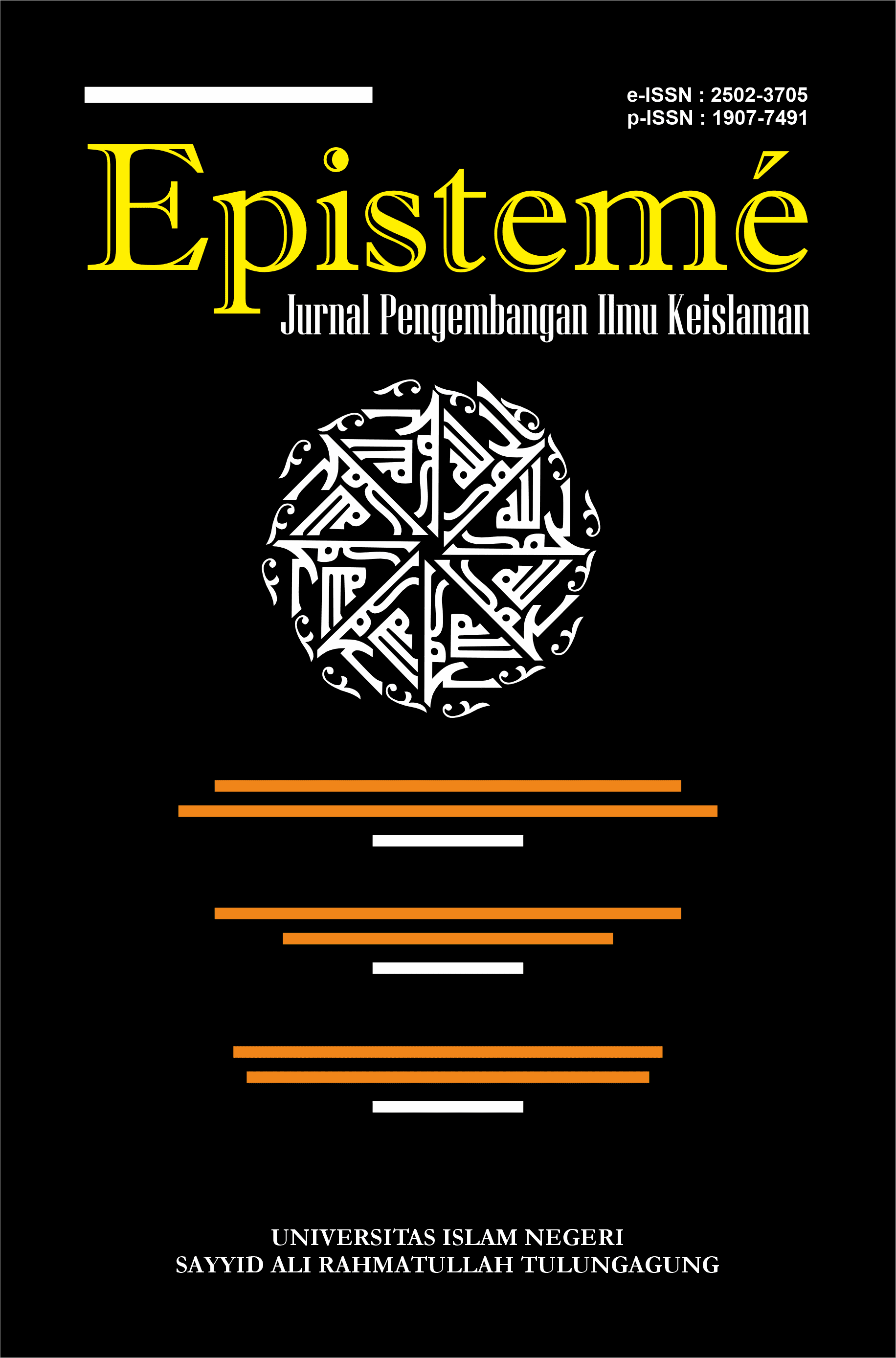Abstract
The article examines Muhammad Asad’s epistemological ground, reflected in his works on the principle of Islamic governance and its basic constitution and foundational structure. In this regard, he formulated the constitutional ideas of the Islamic state, whose constitution contains the provision of Islamic law that practices and implements the norms and postulates of the Divine Writ. This idea was partly enshrined in some of Global South constitutional law, whose political establishment was formed in 1947. It essentially discussed Muhammad Asad’s political ideas and their underlying philosophy as espoused in his works. The work was conducted using qualitative approaches to library research. The data were analyzed using descriptive, analytical, and comparative techniques. The finding shows that Muhammad Asad had formulated a comprehensive theoretical framework of the legal aspect of Islamic governance drawn up from the fundamental principle and doctrine of the sharia and its moral norms deriving from the Qur’anic and the sunnah bases while advocating democratic ideals and principles based on conventional practice and requirement of the modern context of the nation-state.
References
Arshad, Muhammad. “Muhammad Asad: Twenty-Six Unpublished Letters.” Islamic Sciences Vol. 14, no. 01 (2016): 1–66.
Asad, Muhammad. “Calling All Muslims.” Arafat: A Monthly Critique of Muslim Thought 02 (1948): 86–108.
_______. Sahih Al-Bukhari: The Early Years of Islam. Petaling Jaya: Islamic Book Trust, 2013.
_______. The Message of The Qur’an. Gibraltar: Dar al-Andalus, 1980.
_______. The Principles of State and Government in Islam. Berkeley: University of California Press, 1961.
_______. The Road to Mecca. Second edi. New Delhi: Islamic Book Service, 2004.
_______. This Law of Ours and Other Essays. Gibraltar: Dar al-Andalus, 1987.
Asad, Muhammad Asad & Pola Hamida. Home Coming of the Heart (1932-1992): Part II of The Road to Mecca. Lahore: Pakistan Writers Co-Operative Society, 2016.
Asror, Zaimul. Ayat-Ayat Politik: Studi Kritis Penafsiran Muhammad Asad (1900-1992). Tangerang: Yayasan Pengkajian Hadits el-Bukhari, 2019.
Fautanu, H. Idzam. “Konsep Negara Islam Muhammad Asad: Studi atas Pemikiran dan Kontribusinya terhadap Pakistan.” UIN Syarif Hidayatullah, Jakarta, 2007.
_______. “Prinsip-Prinsip Ketatanegaraan dalam Islam Perspektif Muhammad Asad.” Makalah Diskusi Dosen Madrasah Malem Reboan (MMR). Bandung, 2017.
Fresyan, Deny. “Konsep Negara dalam Islam: Studi Pemikiran Muhammad Asad tentang Berdirinya Negara Islam.” IAIN Walisongo Semarang, 2006.
Hamidullah, Muhammad. “Islam’s Solution to the Basic Economic Problems–the Position of Labour.” Islamic Culture 10, no. 02 (1936).
Hasan, Pipip Ahmad Rifai. “The Political Thought of Muhammad Asad.” Concordia University, Canada, 1998.
Kramer, Martin. “The Road from Mecca: Muhammad Asad (Born Leopold Weiss.” In The Jewish Discovery of Islam: Studies in Honor of Bernard Lewis. Tel Aviv: The Moshe Dayan Center for Middle Eastern and African Studies, 1999.
Kurzman, Charles (ed.). Modernist Islam, 1890-1940: A Sourcebook. New York: Oxford University Press, 2002.
Mansoor Ahmed, Ghulam Mustafa, Muhammad Sajid Khan. “Delineations of Governance through Islam in Nascent Pakistan: Department of Islamic Reconstruction and Islamic Law Commission.” Academic Journal of Social Sciences 04, no. 04 (2021). https://doi.org/10.54692/ajss.2020.04041274.
Mayberry, John. “Muhammad Asad: Traditionalist or Modernist?” Journal of Contemporary Study of Islam 04, no. 01 (2024). https://doi.org/https://doi.org/10.37264/jcsi.v4i1.03.
Parker, Mushtak. “Death of a Muslim Mentor.” Middle East, 1992.
Rawls, John. A Theory of Justice. Massachusetts: Harvard University Press, 1999.
Rivai, Acep Bahrul. “Negara Islam Menurut Muhammad Asad: Studi Pemikiran Muhammad Asad dalam Buku The Principles of State and Government in Islam.” UIN Sunan Gunung Djati, Bandung, 2012.
Robbins, Kenneth X. RobbinsKenneth X. “Four People of the Book: From Foreign Jewish Roots to South Asian Islamic Roles.” edited by William L. Richter Zohaib Ahmad, Omar H. Ali, Sifra Lentin. Maryland: Kenneth X. and Joyce Robbins Collection, 2022.
Sherif, M.A. Why An Islamic State: The Life Projects of Two Great European. Kuala Lumpur: Islamic Book Trust, 2009.
Tsauri, Tadzkira Nadiya. “Pengaruh Pemikiran Muhammad Asad dalam Pembentukan Negara Islam: Studi Tentang Terbentuknya Negara Pakistan.” UIN Syarif Hidayatullah, Jakarta, 2017. https://repository.uinjkt.ac.id/dspace/handle/123456789/42126.

This work is licensed under a Creative Commons Attribution-NonCommercial-NoDerivatives 4.0 International License.

